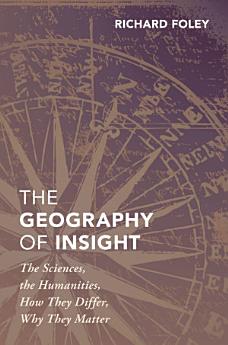The Geography of Insight: The Sciences, the Humanities, How they Differ, Why They Matter
Apr 2018 · Oxford University Press
Ebook
176
Pages
family_home
Eligible
info
reportRatings and reviews aren’t verified Learn More
About this ebook
The humanities and the sciences face challenging times, each in their own way. The humanities suffer shrinking enrollments and budgets, and are perceived by some as irrelevant in a changing economy. The sciences face a political climate that disrespects academic expertise and challenges settled debates. Meanwhile age-old disputes about their spheres of knowledge continue: does scientific knowledge subsume that of the humanities? Are their forms of knowledge complementary, or ultimately at odds? Richard Foley, a philosopher of knowledge and the former Dean of Arts and Sciences at New York University, here provides a concise and accessible overview of what the overarching goals of these disciplines are, relative to one another, and what kind of knowledge they aim to produce. His fundamental argument is that the sciences aim at insights that ideally are not limited to particular locations or times and are also perspective-free and wholly descriptive, whereas the humanities appropriately seek insights about specific locations and times, with the insights being perspective-based and having evaluative as well as descriptive elements. He also finds these two spheres of knowledge to be complementary in the search for understanding of our world and the human condition. The ultimate goal of Foley's investigation however is an eloquent defense and celebration of the culture of academic research. In an era of sound-bites and tweet-length falsehoods, this culture values and supports long-term intellectual achievements for the good of humanity - produced with hard work, dedication, and patience. The Geography of Insight is essential reading for readers both inside and outside of the academy.
About the author
Richard Foley is Professor of Philosophy at New York University. He is the author of When is True Belief Knowledge? (2012), Intellectual Trust in Oneself and Others (2001), and Working Without a Net (OUP 1992).
Rate this ebook
Tell us what you think.
Reading information
Smartphones and tablets
Install the Google Play Books app for Android and iPad/iPhone. It syncs automatically with your account and allows you to read online or offline wherever you are.
Laptops and computers
You can listen to audiobooks purchased on Google Play using your computer's web browser.
eReaders and other devices
To read on e-ink devices like Kobo eReaders, you'll need to download a file and transfer it to your device. Follow the detailed Help Center instructions to transfer the files to supported eReaders.






